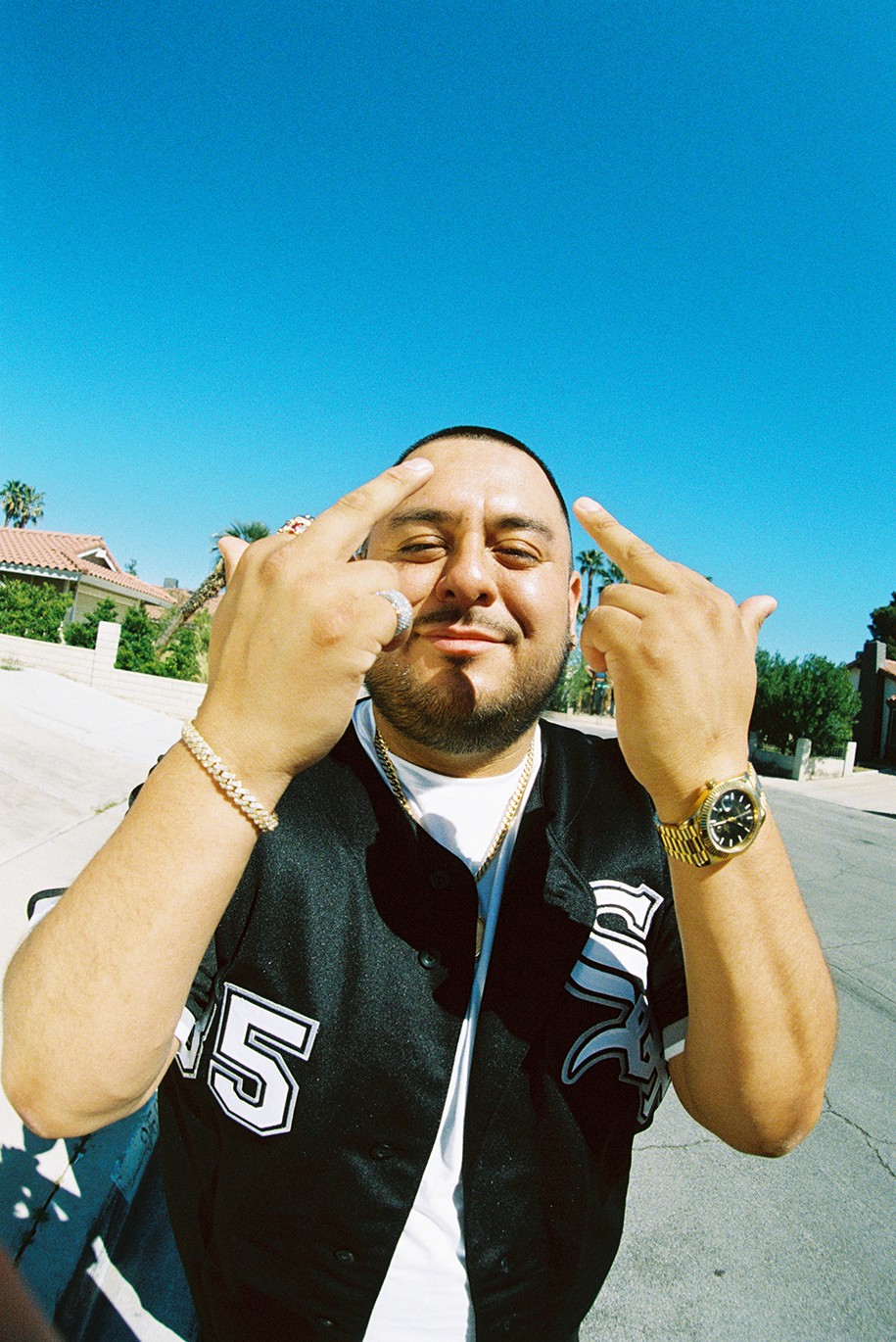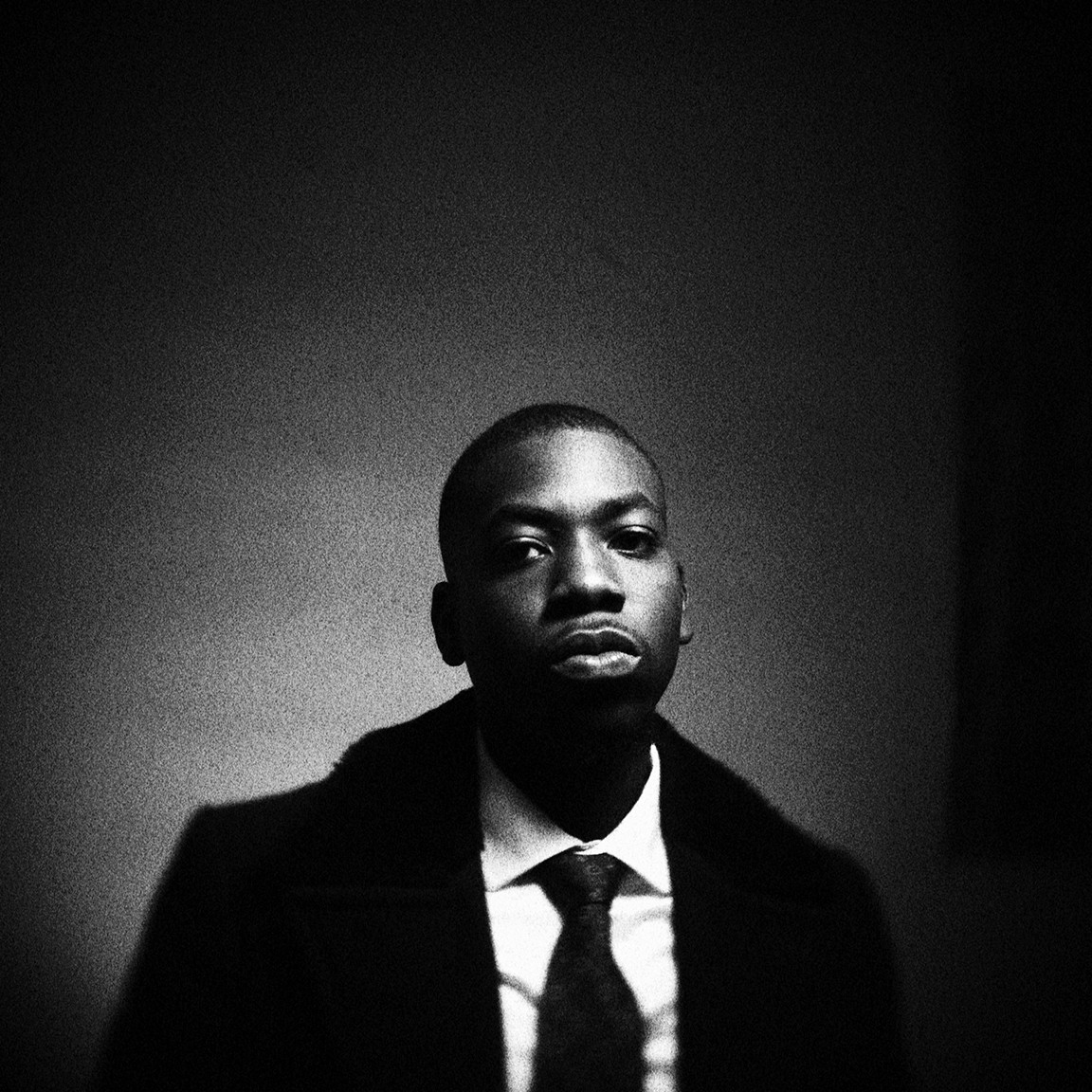Exclusive Interview
Oct 13, 2024
Produced by: Andrej Aroch
Edited by: Andrej Aroch & Rudy Manager
FORTHENIGHT – Producing for Lil Uzi Vert & Summer Walker
Cover Photo Shot by @Crrdo
Charles Junior Ocansey, better known as FORTHENIGHT, is a rising Canadian music producer from Brampton, Ontario. With a unique sound influenced by a mix of R&B, hip hop, Afrobeat, and dark, cinematic vibes, FORTHENIGHT has worked with major artists like Summer Walker, Bad Bunny, Lil Uzi Vert, and Don Toliver. Signed to WondaGurl’s Wonderchild label, he’s quickly gaining recognition in the industry. In this exclusive interview, FORTHENIGHT shares insights into his creative process, his journey from bedroom DJ to producer, and advice for up-and-coming producers looking to carve their own path.
"I love making music that feels like it’s made for the night"
- FORTHENIGHT
How did you first get interested in music?
I got into music through my sisters—they listened to a lot of R&B and hip hop when I was growing up. My parents also played a lot of music from Ghana, where we’re from, so I was surrounded by all kinds of sounds, from African music to hip hop and R&B. That mix got me really curious about how music is made. I actually started out as a bedroom DJ, and eventually, that led me to become a producer when I realized how music was created. That's where it all began for me.
When you were DJing, did you do any gigs or were you just doing it for fun?
Nah, I was definitely just a bedroom DJ at that time—really inexperienced. I think I only DJ'd for like a month or two before I switched to producing. I wouldn’t even call myself a DJ back then. But making that switch felt right, and it definitely took me further.
When you first transitioned into music production, what inspired you to start creating compositions and samples, and how did that help you break into the industry?
I actually started with drums, flipping old records from the '60s, '70s, and '80s—anything that sounded cool, even scary movie soundtracks. That’s how I got into creating compositions and samples. Around 2016 to 2018, not a lot of people were making samples, so if you were, you were really “that guy.” Most people were focused on drums, so going into sample-making put me in a different lane. People were always looking for unique samples, and I have a specific sound. If you hear my samples, you know it’s FORTHENIGHT, and that definitely helped me break into the industry.
Do you think starting with sample making is still a good way for aspiring producers to break into the industry today?
I’d say probably not, because it’s oversaturated now. There are other ways to break in, like using TikTok and Reels. If you do make samples, try to stand out—maybe post videos of yourself creating them. But I think a big thing now is adding value to the producer community, like making tutorial videos to help others. That way, people can see you’re cool, have a good vibe, and are skilled at making samples. In 2024, I think that’s one of the best ways to break in.

Shot by @bleongphoto
Is there a song of yours that holds a special place in your heart?
That would be Young Nudy ‘s “2Face” I did with Bentley Coupe. I’ve been listening to Young Nudy since high school—he was one of the main artists my friends and I would play at parties or while driving. We used to listen to his track “EA” with 21 Savage all the time. So when I got the chance to produce for him, it was a huge moment for me. It felt surreal, going from being a fan in high school to actually working with him.
When you're producing, do you usually work alone at home or prefer studio sessions with the artists?
I do both. Early on, it was mostly working alone at home in the studio. But after a while, you can lose inspiration doing it by yourself. Now, I draw inspiration from working with other people or just being out in the world. It helps keep things fresh.
What do you think is the most important aspect for producers to keep in mind when working directly with an artist in the studio?
Listen to the artist. While it’s good to push them out of their comfort zone sometimes, ultimately, you’re there for the artist. If they’re open to exploring new ideas, you can try different beats, but it’s important to trust their vision and work alongside their ideas. Once you build trust with an artist, that’s when you can start suggesting new directions or concepts more confidently.
What music do you usually listen to in your free time?
I listen to a lot of different genres—soul, hip hop, R&B, and recently a lot of funk. I draw inspiration from everything. I don’t stick to one style because I feel it can limit creativity. For example, I might take elements from a soul record and use them in a trap beat or pull funky bass lines into my Afrobeats. I like to incorporate different ideas from various genres into my own music.
Do you have any favorite up-and-coming artists or producers who you think will be big in the next few years?
When it comes to artists, I'd say Kwazii —I'm working with him right now, and he's incredible. On the producer side, there's this kid named SayQuizzy. He’s really good at making samples, I think he's definitely next up.
Do you have any advice for up-and-coming producers?
My advice is to build your own brand. The industry is oversaturated with people following the same trends, so if you create your own wave, people will come to you. That’s how you build leverage. Also, be patient and treat people like human beings, not just opportunities. When networking, ask how someone’s doing or what they’re listening to, instead of going straight to business. Building real connections will make people remember you, and they’ll be more likely to think of you for opportunities.
Do you have any upcoming plans or projects you're excited to share?
Recently I’ve been DJing a lot, and I’m planning to start releasing music as FORTHENIGHT on Spotify—mainly afro-house and house tracks featuring different artists. That’s my next big focus. I’m also continuing to build with artists like Kwazii.
My long-term goal is to turn FORTHENIGHT into a full brand rather than just a producer name. While making beats and spending hours in the studio is cool, I want to build leverage so that people come to me. With DJing, I’m working toward headlining my own shows and collaborating directly with artists. Ultimately, the big goal is to make FORTHENIGHT a brand that stands for more than just production.
Is there something you would like to add?
Stay consistent, keep working, and be patient. Trust in God. That’s the best advice I can give.
Follow FORTHENIGHT on Instagram: @forthenightmusic
More Blog Posts
See our latest blogs














